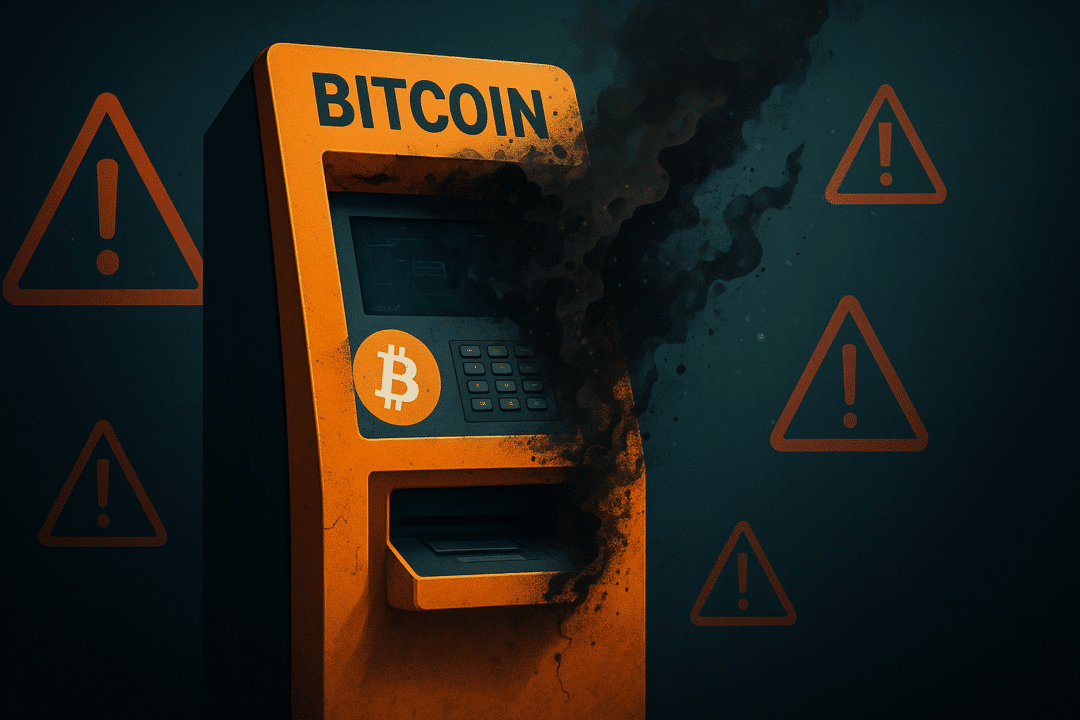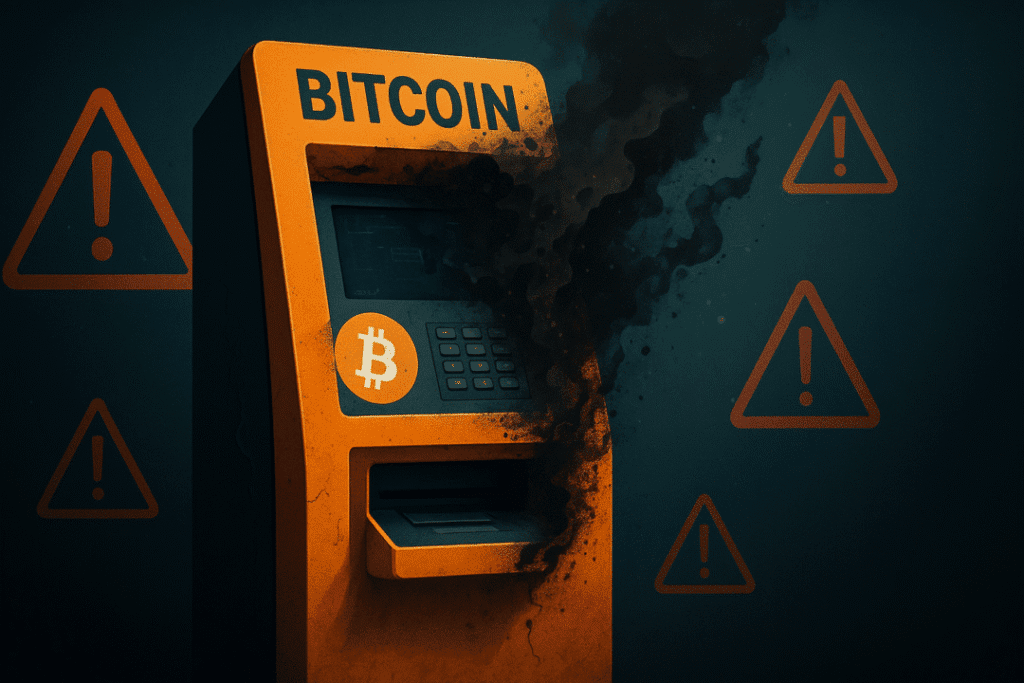

Scammers are targeting their victims, particularly older Americans, by posing as government officials and asking them to deposit money into cryptocurrency ATMs. Victims lose tens of thousands of dollars in transactions that police say are nearly impossible to trace or recover.
How the scam works
Scammers call their victims and pretend to be:
- Government agents
- Law enforcement officers
- Bank security personnel
- Family members in distress
They inform the victim that their bank account has been compromised or that they urgently need to move money to protect it. Then they direct the victim to a Bitcoin ATMwhere the money is converted into crypto and sent to a wallet controlled by the scammer.
These machines look like traditional ATMs but do not connect to your bank account. Instead, they allow people to insert cash and purchase cryptocurrency, which can then be sent anywhere, instantly.
Victims lose tens of thousands
In South Hadley, Massachusettsan employee followed a scammer’s instructions and deposited $11,000 from store safe in a Bitcoin ATM. The police never recovered the money.
Other residents lost $48,000 And $4,900 in similar frauds.
Selinsgrove, Pennsylvania, also reported a recent case in which an elderly resident lost $22,000victims of a fake government call urging them to move their money “for security reasons”.
These scams are happening all over the country. In 2024 alone, the FBI received 11,000 reports of scams involving crypto ATMs, with total losses of $247 million—a 99% increase over the previous year.
Local cities and states take action
- Waltham And Gloucester, Massachusettshas completely banned cryptocurrency kiosks.
- Hadley South is considering a citywide ban. Business owners would have 30 days to collect the machines or face a $300 daily fine.
- State legislators are debating a bill (H 1247 / S 707) which:
- Limit transactions to $1,000 per person per day
- Require kiosk operators to register each machine
- Mandate fraud warnings and real-time support
- Require operators to report their locations and activities every quarter
Law enforcement supports the measures, saying the machines encourage fraud and make investigations nearly impossible.
Why recovery is so difficult
Once a scammer gets your money through a crypto ATM, they:
- Move it to a digital wallet
- Spread it across multiple accounts
- Send it abroad in just a few hours
By the time victims report the scam, it is often too late.
“I’ve worked on 60 cases like this and I’ve maybe recovered money on four of them,” said Waltham Police Detective Michael Maher. Assistant DA Nicholas Atallah said he was successful in only two cases.
Crypto’s Image Problem
These scams don’t just harm the victims: they harm the entire crypto industry.
- Individual investors lose confidence
- Regulators facing pressure to act
- Projects and exchanges struggling to prove credibility
Crypto thought leaders on Reddit and X (formerly Twitter) are now pushing to:
- Stronger public education
- Scam warnings built into platforms
- More transparency in the DeFi and NFT ecosystems
Many agree: until the industry addresses fraud, mainstream adoption will stagnate.
What Investors and Residents Need to Know
- Never Use a Bitcoin ATM at the request of a caller, regardless of who they claim to be
- No government agency will request payment in crypto or via a Bitcoin ATM
- Always check before acting: call a trusted number, not one provided by a stranger
- Report scams immediately to local police and the FBI ic3.gov
What’s next for crypto ATM regulation?
If passed, the Massachusetts bill could become a national model. This would allow:
- Require printed receipts for every transaction
- Mandate Blockchain Analysis to Detect Fraud
- Assign a compliance officer to each kiosk network
Industry advocates support regulations that prevent abuse without blocking innovation. “The best way to combat crypto fraud is to prevent it in the first place,” said Glenn Kaplan of the Massachusetts Attorney General’s Office.
Conclusion
Bitcoin ATM scams are growing rapidly, targeting the most vulnerable and exploiting public confusion about crypto. Lawmakers, prosecutors and city leaders are stepping up, but education remains the strongest line of defense.




